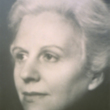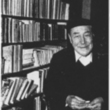Uncertain glory
(Book)
F SALES
1 available
Copies
| Location | Call Number | Status |
|---|---|---|
| Central - Adult Fiction | F SALES | Available |
Description
More Details
Notes
Subjects
Similar Titles From NoveList
Similar Authors From NoveList
Published Reviews
Publisher's Weekly Review
A Catalan novel banned in Franco's Spain when it was first published in 1956, this enthralling work-translated into English for the first time-focuses on four young Catalonians struggling with faith and faithfulness during the Spanish Civil War. The narrative includes two epistolary sections set in 1937, as well as a recollection of the events 20 years later. The first part comprises letters from Lluis, a romantic, somewhat callous fighter in an anarchist brigade who woos the scheming widow of an executed nobleman while ignoring the woman he left behind, Trini, the mother of his child. Trini, in turn, unburdens herself in a series of letters to the couple's mutual friend Soleràs, an eccentric and eminently quotable intellectual who "steal[s] from soldiers on the front line to give to whores on the rearguard." The third narrator is Cruells (whose section is the only non-epistolary one), a young medical adjutant with dreams of becoming a priest. Troubled yet fascinated by Soleràs's mesmerizing, blasphemous philosophizing, he develops a fraught relationship with Trini as well. These subtly drawn love triangles emerge against the backdrop of a country divided, in an era that "has preferred to slash the veils that cover birth and death, the obscene and the macabre." Apparitions, lurid dreams, and disinterred mummies litter the novel, lending it a hallucinatory quality that pairs perfectly with the darkly comic depictions of wartime absurdity. (Oct.) © Copyright PWxyz, LLC. All rights reserved.
Kirkus Book Review
Catalan writer Sales tells a multilayered story of loves, faith, friendships, and ideals tested by the Spanish Civil War in this novel banned by Franco's censors, then published in 1956 after the author's return from exile.Former school friends Lt. Llus Ruscalleda and Juli Solers are reunited in a republican brigade on the Aragon front, fighting "for hygiene and culture" against the fascist forces. In a sacked monastery, Llus salvages books and searches for a missing certificate for the mysterious lady of the castle. When tins of condensed milk go missing, Solers brags of stealing "from soldiers on the front line to give to whores in the rearguard." Sales draws on his own experience in a similar brigade, fighting for Catalan independence; he brings a new perspective to the civil war and writes with authority about "half-burnt bread" and "the sad, obscene songs the recruits sang." But it is the compelling depth of the varied, complex, human characters that shows his true mastery. Llus wonders, "Which part of us must remain unchangeable? Are we so sure it's more valuable than the part that leaves us at every moment? Or are we entirely ghostlike, clouds whose single hope is to live a moment of glory, one solitary moment, and then vanish?" In Barcelona, Trini Milmany, a geologist and mother of Llus' son, considers "what the success of these winners represents in terms of geologyless perhaps than that of a mosquito from the Carboniferous Age." The glorious possibility of a Catalan republic devolves into what one disillusioned anarchist calls this "sinister revolutionary carnival," adding, "Our ideals were so beautiful...when nobody had tried to put them into practice!" Amid the horror, the thirst for glory persists: "We have acted like men and we've acted like wild beasts...how can anyone now ever become a notary?" There are moments of transcendent beauty: a castle imagined as "a frigate of stone, people and animals all on board, all sailing together in this huge ship that seems still but is moving across the ocean of time"; a character walking through a town's snow-covered ruins as if "wading through the remnants of a shipwreck." And of humor: "The worst side to wars is the fact they're turned into novels," Solers complains. "Foreigners will turn this huge mess into stirring stories of bullfighters and gypsies." Philosophical and earthy, tragic and funny, honest, raw, superb: Sales makes Hemingway seem thin, even anemic, in comparison. This book is a rich and highly recommended feast. Copyright Kirkus Reviews, used with permission.
Publishers Weekly Reviews
A Catalan novel banned in Franco's Spain when it was first published in 1956, this enthralling work—translated into English for the first time—focuses on four young Catalonians struggling with faith and faithfulness during the Spanish Civil War. The narrative includes two epistolary sections set in 1937, as well as a recollection of the events 20 years later. The first part comprises letters from Lluis, a romantic, somewhat callous fighter in an anarchist brigade who woos the scheming widow of an executed nobleman while ignoring the woman he left behind, Trini, the mother of his child. Trini, in turn, unburdens herself in a series of letters to the couple's mutual friend Soleràs, an eccentric and eminently quotable intellectual who "steal from soldiers on the front line to give to whores on the rearguard." The third narrator is Cruells (whose section is the only non-epistolary one), a young medical adjutant with dreams of becoming a priest. Troubled yet fascinated by Soleràs's mesmerizing, blasphemous philosophizing, he develops a fraught relationship with Trini as well. These subtly drawn love triangles emerge against the backdrop of a country divided, in an era that "has preferred to slash the veils that cover birth and death, the obscene and the macabre." Apparitions, lurid dreams, and disinterred mummies litter the novel, lending it a hallucinatory quality that pairs perfectly with the darkly comic depictions of wartime absurdity. (Oct.)
Copyright 2017 Publisher Weekly.Reviews from GoodReads
Citations
Sales, J., Bush, P. R., & Goytisolo, J. (2017). Uncertain glory . New York Review Books.
Chicago / Turabian - Author Date Citation, 17th Edition (style guide)Sales, Joan, Peter R. Bush and Juan Goytisolo. 2017. Uncertain Glory. New York: New York Review Books.
Chicago / Turabian - Humanities (Notes and Bibliography) Citation, 17th Edition (style guide)Sales, Joan, Peter R. Bush and Juan Goytisolo. Uncertain Glory New York: New York Review Books, 2017.
Harvard Citation (style guide)Sales, J., Bush, P. R. and Goytisolo, J. (2017). Uncertain glory. New York: New York Review Books.
MLA Citation, 9th Edition (style guide)Sales, Joan, Peter R. Bush, and Juan Goytisolo. Uncertain Glory New York Review Books, 2017.


























